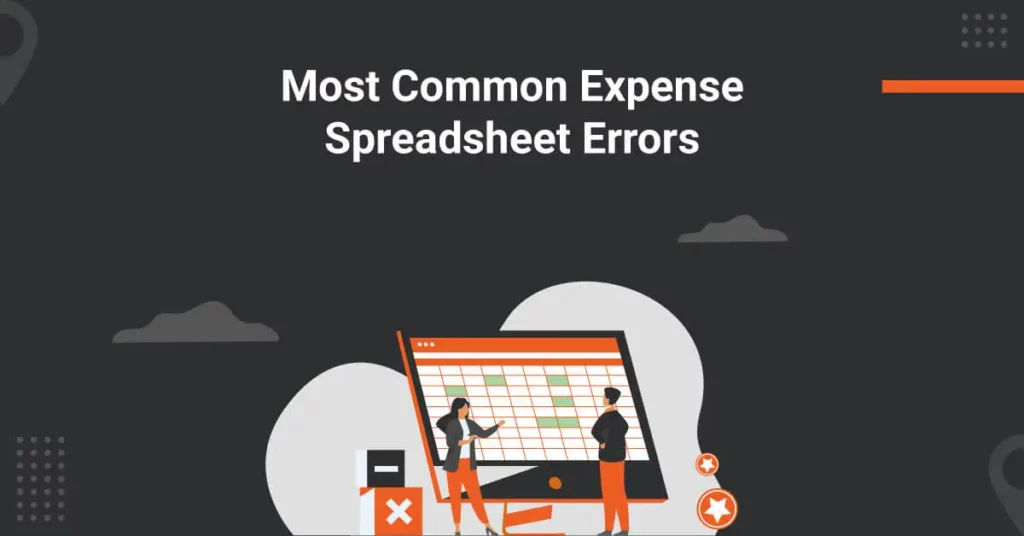
Most businesses, whether small or large, use spreadsheets for various purposes, including financial calculations, planning, data aggregation, and decision-making tasks. Spreadsheets are also used to store, analyze and calculate expenses which help you keep track of your business spending.
These expense spreadsheets are essential tools for business owners, accountants, and sales managers to manage and prepare expense reports. They also help in accounting functions such as budgeting, preparing financial statements, and creating balance sheets.
Although expense spreadsheets are undoubtedly helpful in managing expenses, they are prone to many human errors. Additionally, the data in spreadsheets can be easily altered and manipulated, leading to incorrect results. Even a single mistake, no matter how small, can cost a company its money, time, and reputation.
So, what are the most common expense spreadsheet errors? Let’s have a look:
1. Data Entry Errors
Companies in almost every industry rely heavily on data for their operations. Over the years, companies have been using spreadsheets that require manual data entry to manage these data.
However, manual data entry causes several errors that compromise the data quality. This leads to incorrect results, which affects the organization’s overall success. Even while managing and filing expenses, even the most minor data entry mistakes in a spreadsheet can cause catastrophic consequences.
Data entry errors can include incorrect data entry, oversight errors, misinterpreted data, etc. And while using expense spreadsheets, these errors are bound to happen, especially when entering big numbers. Moreover, not entering the correct currency while converting the money can also lead to errors.
Therefore, always re-check your data once you finish entering them to avoid such mistakes. Validating the data, enabling data profiling, identifying sources of inaccuracies, and incorporating automation is also good practice to minimize data entry errors significantly.
2. Formatting Error
While using an expense spreadsheet, one of the essential aspects is formatting. Formatting is a method of organizing and changing the appearance of data represented in the spreadsheet. It generally includes adjusting the sizes of the columns and rows, the dimensions of the cells, highlighting a cell with color, number formatting, a standard font style, and many more. While making all these changes, errors are bound to occur as they are done manually.
Some of the most common spreadsheet formatting errors include:
- Leaving blank rows or columns.
- Highlighting a cell with dark color.
- Merging two cells in rows and columns.
- Overlapping the borders of two or more cells.
- Entering more than one information in a cell.
- Using multiple tables on one page.
Similarly, in an expense spreadsheet, while inserting and deleting columns and rows, formulas can get messed up, leading to incorrect calculations of the company’s expenses.
To avoid such errors, you can use the latest version of the expense spreadsheet. You can also avoid using too many tabular columns, formatting date formats into texts, using filters to sort the date, etc., so there are minimal to no formatting errors.
3. Copy and Paste Errors
Copying and pasting data in expense spreadsheets are commonly used in various industry sectors to save time and energy. But both major and minor errors can impact the expense results during copying and pasting. The 2012 ‘London Whale’ incident compromised JP Morgan’s revenue of approximately $6.2 billion because an employee copied and pasted wrong figures into an excel spreadsheet.
These errors can be as simple as copying and pasting in another column or from the wrong source. During this process, most employees forget to edit details such as employee and company names, dates, and prices incurred. Other errors include typographical and grammatical errors.
Spreadsheets with such errors, when presented in front of a large audience, clients, or during an audit, can cause embarrassment and lessen your company’s credibility due to wrong information.
Therefore, you must always proofread the data, follow a particular format, check for data and spelling errors, and rely less on copy-pasting the data to obtain accurate results.
4. Not Filling in Zeros
In an expense spreadsheet, entering any number in a cell is considered to have value even if no transaction is made. For instance, you calculate an employee’s total cost on a business trip. The employee has made a few incidental expenses from Monday to Wednesday and made no expenses on Friday and Saturday. Therefore, you don’t enter any number and leave the cell blank in the expense spreadsheet for those two days.
But, there is a difference between a zero and a blank cell in a spreadsheet. Zero is considered to be data, while an empty cell means there is no data, and the spreadsheet will consider it as an unknown or null value. Hence, while calculating expenses, you may not get the correct sum of the costs, and the result will not be precise.
Therefore, you must always enter the zeroes and not leave the cells blank. Alternatively, you can customize the formulas so that the spreadsheet doesn’t consider the blank cell while calculating the expenses. By doing so, you can get correct results.
5. Sharing Expense Spreadsheet with Multiple Users
The major advantages of using spreadsheets include less paper usage and improved access. Many users can access the expense spreadsheet from anywhere, anytime. However, shared spreadsheets are prone to numerous errors.
With many people accessing the same spreadsheet, some of them may not be able to use them or get error notifications, such as ‘open only in read-only mode’ or ‘someone is locking the document.’ Also, other users may no longer be able to save or update their data.
The expense spreadsheet can also become corrupt with multiple users but still open and function, causing problems later. Also, errors such as fraudulent manipulations can result in billion-dollar losses.
You can avoid these errors by removing the inactive users, checking the security settings whenever anyone new wants to access it, creating a copy of the expense spreadsheet, and sharing the spreadsheet on trusted and virus-free platforms like Microsoft Office 365 and OneDrive.
6. Using Incorrect Formulas
Formulas are specific expressions that perform mathematical operations and get the required results. They are most commonly used in spreadsheets such as Excel. By using formulas in spreadsheets, you can make quick calculations to get the total results of all the expenses from the cells, rows, or columns.
Although formulas are a fast way of obtaining results, entering wrong formulas in an expense spreadsheet gives erroneous results. For instance, a formula comprises of few to multiple mathematical symbols such as plus and minus. If you miss adding one of them or enter the wrong sign, the result will be incorrect, which can lead to a huge loss to your company.
Fidelity Investment once suffered a $2.6 billion overstatement when an accountant inadvertently omitted the minus sign on a net capital loss of $1.3 billion.
You can avoid such errors by solving error messages such as ‘#N/A!’ or ‘#VALUE!.’ Moreover, you can check the sums, turn on the error-checking button, enter numbers without formatting, trace the error back to its source, cross-check if it is the correct formula, and use a colon to indicate a range.
Switch to Expense Management Software Now
Using an expense spreadsheet for business expense management is unsafe and inefficient. Although it has varied benefits, it is still prone to errors because manual data entry leads to inaccurate results. Manual expense processing is very tedious and time-consuming for both employees and approvers. Also, processing an expense report via spreadsheets is more expensive than automated processing.
ITILITE expense management software helps you automate your expense processes. It eliminates most of the challenges associated with expense spreadsheets, such as data entry and formatting errors. It also has enhanced convenience, accessibility, and improved data accuracy, which benefits your company over the traditional method of manually entering data.
Get the free demo of our corporate travel management platform to try out the various features.
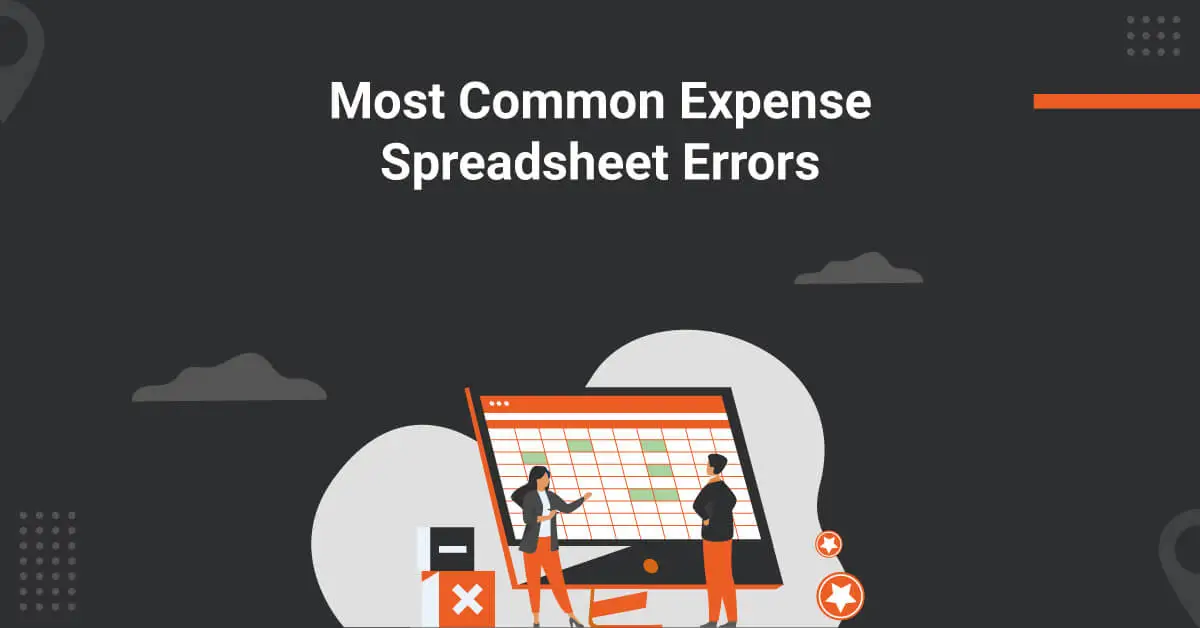







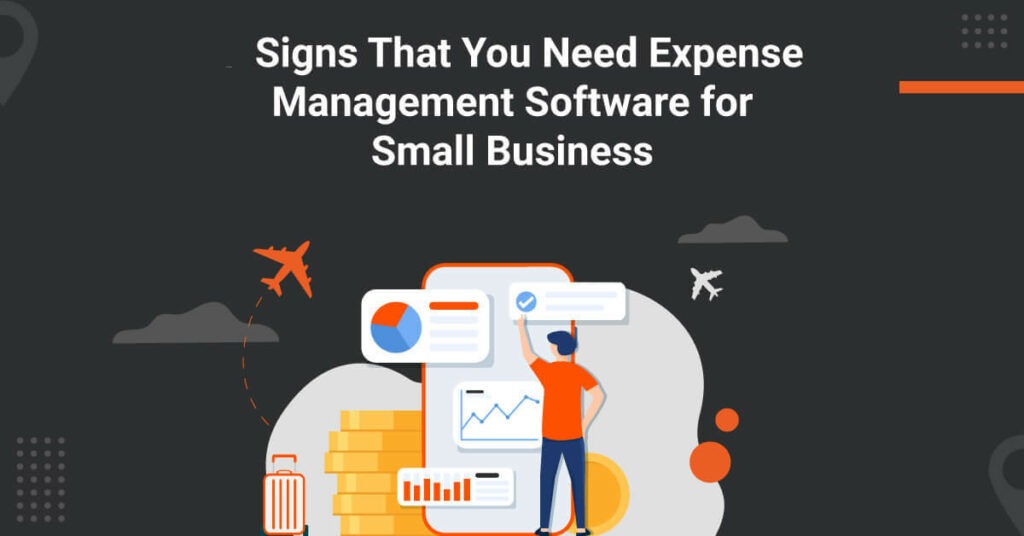
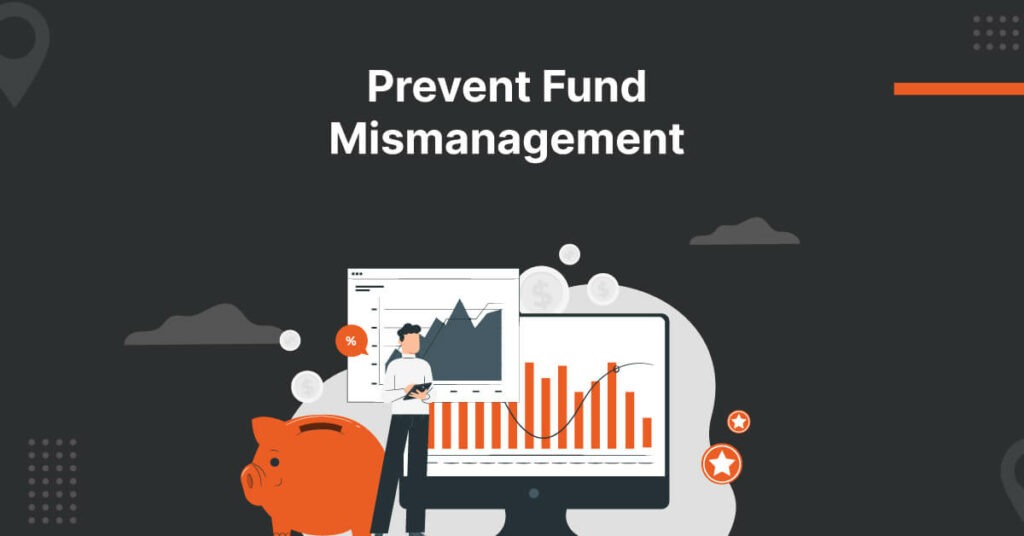
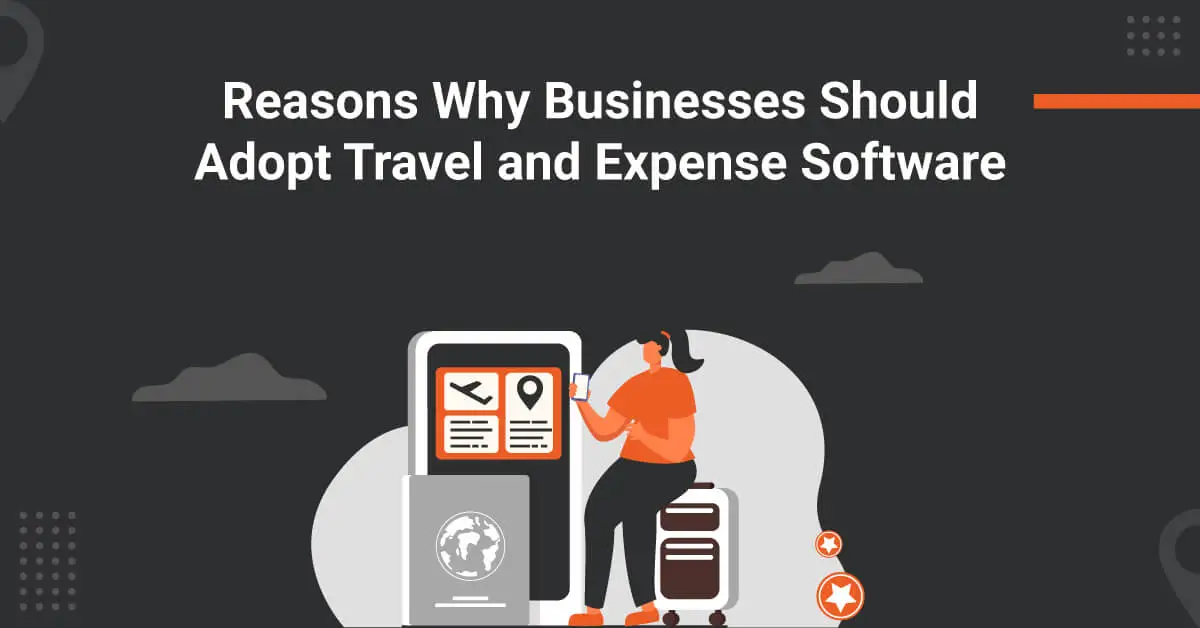





 and then
and then